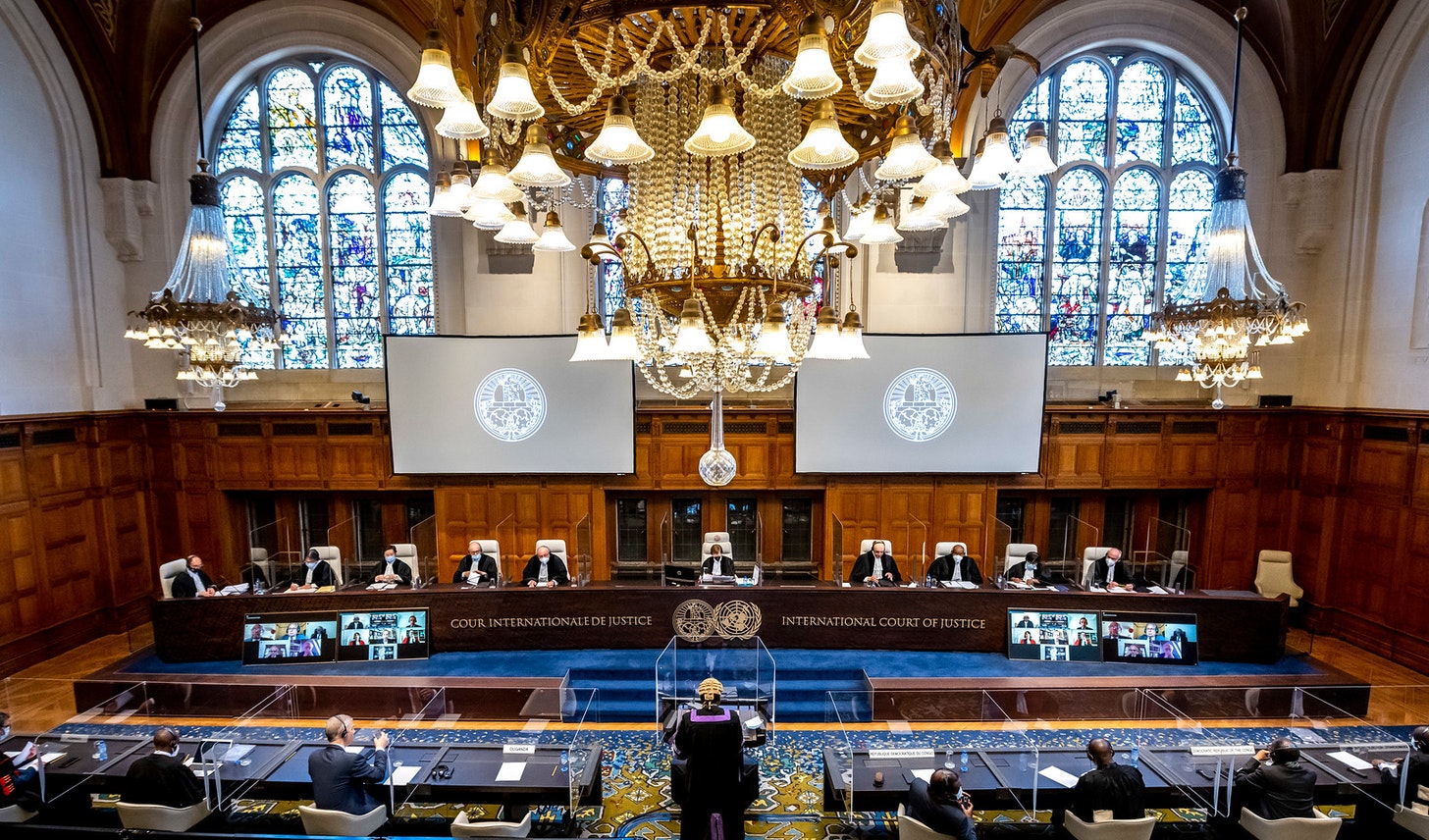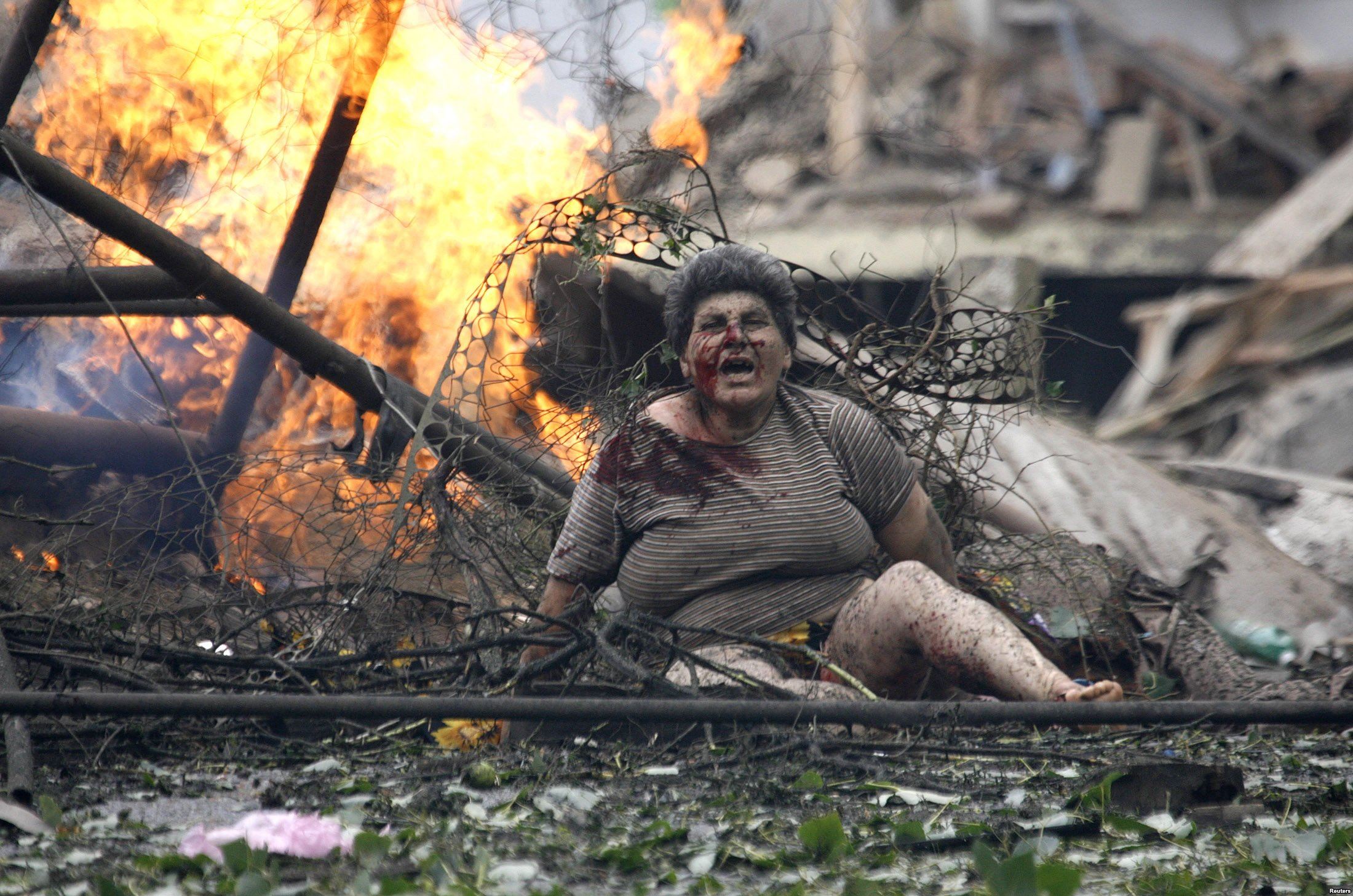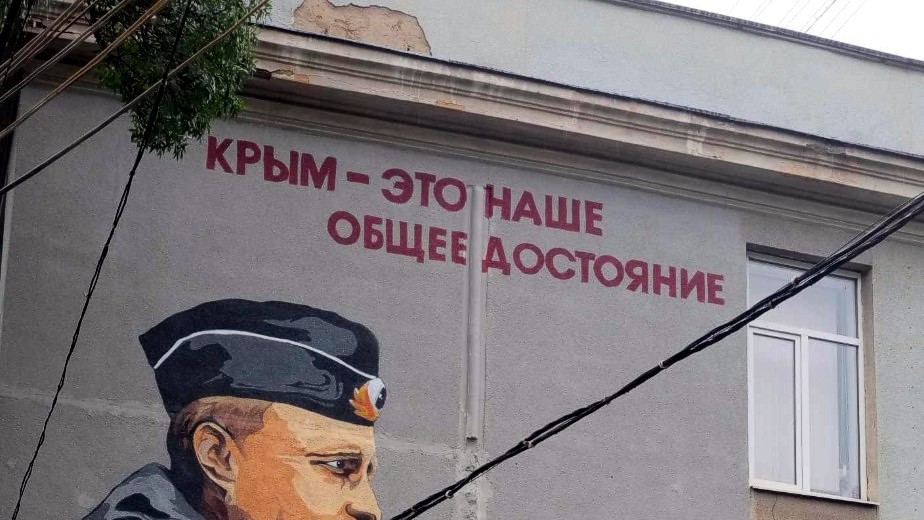What Ukraine demands
Two groups of Ukrainian accusations and demands to Russia regarding terrorism in Donbas and discrimination in occupied Crimea correspond to two UN conventions against the financing of terrorism and against racial discrimination (ICSFT and CERD).
Under the Convention on the Financing of Terrorism, Ukraine asks the court to oblige Russia and its officials to cease financing terrorists - to stop the transfer of funds and weapons to the proxy Donetsk and Luhansk “people’s republics” in Eastern Ukraine (“DNR” and “LNR”) and to compensate moral and material damage caused to the victims and the state.
Under the Convention on Discrimination, Ukraine asks the court to restore the rights of the Mejlis in Crimea, to ensure the right for education in the Ukrainian language, to provide all residents of Crimea under the Russian jurisdiction effective protection and to stop the policy of cultural destruction of Crimean Tatars, as well as to pay financial compensation for the damage inflicted on Ukraine and victims of discrimination.
In 2017, the court imposed part of Ukraine’s requested provisional measures against Russia in terms of discrimination, but in terms of financing of terrorism concluded that Ukraine had not yet provided sufficient evidence. However, these measures were not yet the final decision.
- Read more: UN Court takes on Ukraine’s case against Russia, partially grants request to provisional measures

Arguments in the case against Russia
The charges brought against Russia by Ukraine include:
- the provision of weapons and other forms of assistance to illegal armed groups;
- shooting down the Malaysian Airlines flight MH17;
- shelling of residential districts of the towns of Mariupol and Kramatorsk;
- the destruction of a civilian passenger bus near Volnovakha;
- an explosion during a peaceful gathering in Kharkiv;
- discrimination against Ukrainian and Crimean Tatar communities;
- prohibition of the activity of the Mejlis of the Crimean Tatar people;
- waves of disappearances, assassinations, unauthorized searches, detentions;
- restrictions on the teaching of Ukrainian and Crimean Tatar languages.
Appealing to these crimes, Ukraine wants to prove that the case is admissible and should be considered by the court.

The Ukrainian side didn’t include the annexation of Crimea and de-facto occupation of Donbas in the suit explicitly, as Russia will never accept such a suit and it will have no result. However, the success in such a limited suit will force Russia to stop a number of repressions without which the occupation in its contemporary model is hardly possible.
“[Answering Ukrainian arguments, Russian lawyers] repeat all the time that we have an ‘artificial dispute,’ that there is no reason to use the two conventions to which we refer, that they generally believe that we use this court as an instrument of political pressure on Russia and that in general, all these problems are connected to [the Euromaidan revolution] which happened to us in 2014 [...] and nothing more. And that we are trying to create a legal war with Russia at all fronts," Olena Zerkal, Deputy Minister for Foreign Affairs of Ukraine, commented on the second round of the hearing to Ukrinform.

In their article, Ukrainian lawyers Nikolay Yurlov and Dmytro Hadomskyi sum up the arguments of both sides on the admissibility of the case. Although the Russian arguments are purely formal, some of them still can impede a successful output for Ukraine.
Both conventions require that, before appealing to the court, the parties must negotiate to settle a dispute. In its arguments, Russia mentions that Ukraine tried to "settle the conflict peacefully,” but did so without enthusiasm, only to meet the formalities. In its turn, Ukraine insists that it did everything possible to settle the conflict before turning to the court, but that the Russian side delayed negotiations or refused to consult them at all.
From the beginning of the trial, Russia claimed that everything that happens in eastern Ukraine is an internal military conflict, not terrorist activity. For example, Russia says that shelling of checkpoints is a permissible action during battles, not terrorism. In its turn, Ukraine points to intercepted talks of the militants and their maps proving that the militants were guided by Russia and intended to shell houses in order to intimidate civilians.
In the situation with the downed MH17 passenger airplane, Russia says that the militants did not know they are shooting down a civilian plane and that there was no intention to commit a terrorist act. To this Ukraine objects that Russia, when giving a gun to the “monkey,” should understand that the "monkey" does not distinguish civilian aircraft from military jets.
Russia also says that only Ukraine calls the "LNR" and "DNR" terrorist organizations. No international organization recognized such a status for the quasi-states supported by Russia, and, therefore, it does not matter whether Russia finances them. For this, Ukraine says that the Convention on Terrorism is does not require "official" recognition of terrorists as terrorists. The very fact of whether the organization conducts terrorist acts is important.
Russia says that the problems of minorities in occupied Crimea is discrimination on political grounds and, therefore, they are not subject to the Convention on Discrimination. Ukraine says that Russia is trying to artificially limit the Convention and it is necessary to look at the substance of the discrimination, not its form.
What is next
Both sides have already stated their positions regarding the admissibility of the case. Now the court has time to decide whether it recognizes the jurisdiction to hear the dispute. If so, the court will appoint a hearing date on the case in essence. Even though the court has not yet recognized its jurisdiction, Ukraine has already filed a substantive memorandum to the case, which contains 447 pages of the main text plus 17,000 pages of annexes.
All these documents weigh more than 90 kg and contain evidence that Russia discriminates against Crimean Tatars and Ukrainians in occupied Crimea, as well as finances de-facto terrorist organizations in Donbas. If the court recognizes its jurisdiction over this case, then Russia will have 13 months to file a counter-memorandum.
Although international court can’t force Russia to leave Crimea and Donbas, it can create a foundation for further international sanctions against Russia, limit Russia’s support for militants in Donbas, and Russian actions in Crimea. Thus, Ukraine can move one step further to return its territories.
Read also:
- What Ukraine won and lost at the International Court of Justice
- Kyiv working via courts to ‘return Russia to framework of international law’
- Russia in The Hague: the lies, the fakes, and the fairy tales
- Ukraine vs. Russia in The Hague





